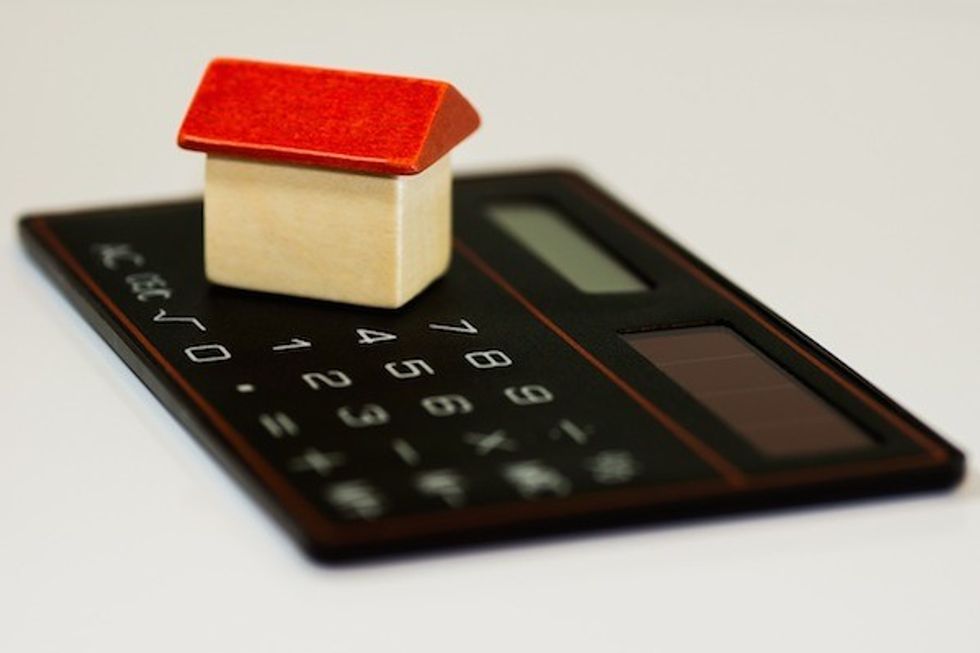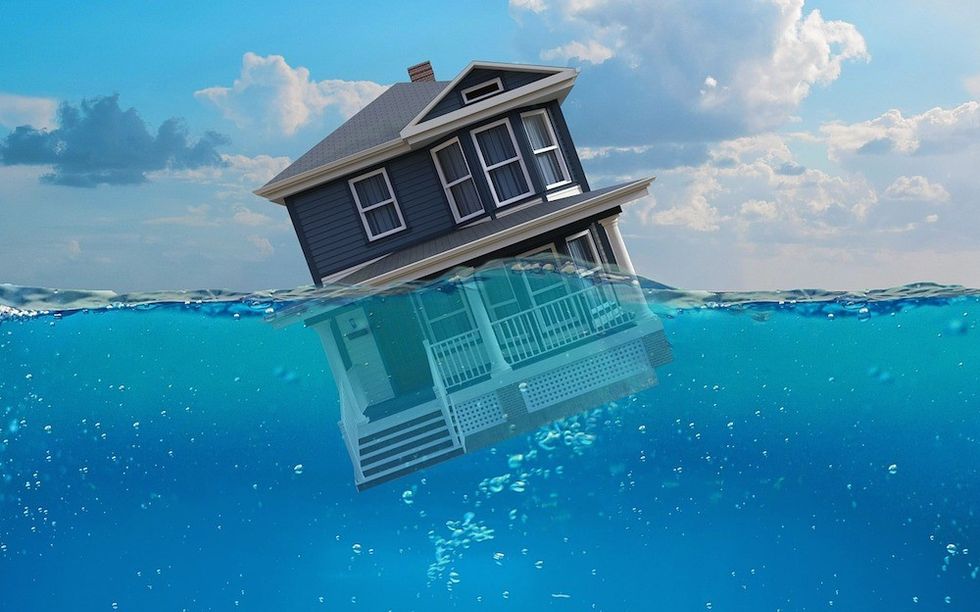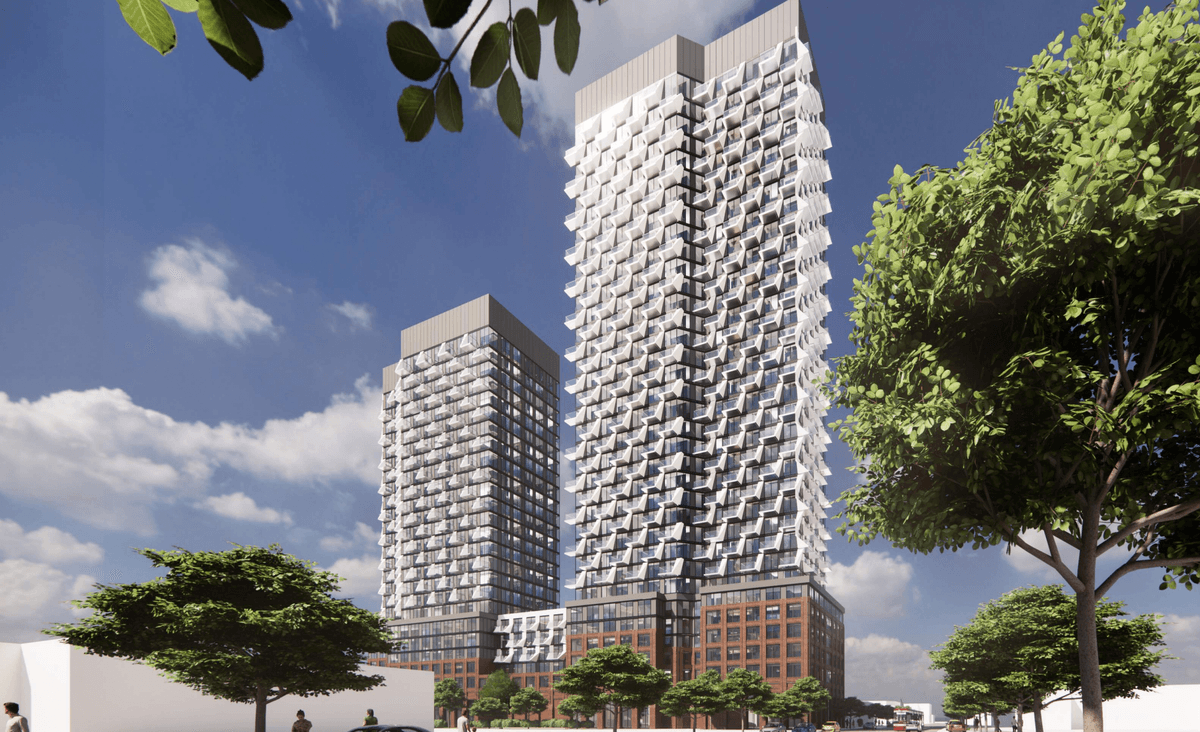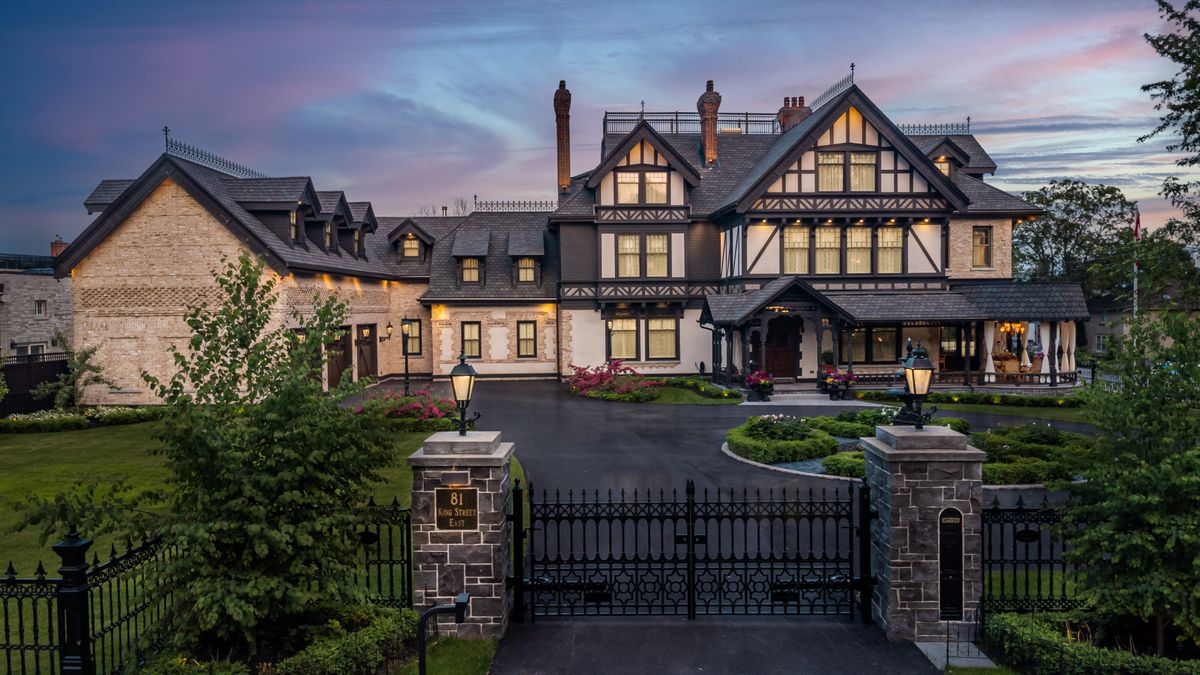Given the dramatic scene that’s unfolded this past year in Canada’s red-hot housing market, the word “bubble” has been tossed around in many a conversation.
With its jaw-dropping bidding wars and record-breaking home prices, the Canadian real estate market – especially in places like sizzling southern Ontario – has accelerated at what many consider to be an unsustainable pace for much of the past year. (See: tens of thousands of dollars in price increases per month.)
First things first, though -- how are we defining a bubble? Well, a real estate bubble can occur when housing levels rise up significantly due to demand, speculation, and exuberant spending – quite the combo. And if you're thinking to yourself, gee, that sure sounds familiar, you're not wrong. All of these factors have currently been playing out across the Greater Toronto Area (GTA), small town Ontario, and Canada at large as of late.
At some point however -- no one actually knows when -- this growth theoretically becomes unsustainable; eventually the demand decreases or flatlines, thus causing a steep drop in prices.
It is at this moment that the bubble bursts. And Twitter users who have been calling for this to happen for the last 12 years suddenly get to shout 'I told you so!' all the way to the public stratosphere.
Just a few months back, experts seemed more divided on the existence and probability of a bubble. But Bank of Canada indicators released just last week confirm that some Canadian real estate markets – Toronto, Hamilton, and Montreal – were considered bubbles in Q1 of 2021. Toronto and Hamilton (the latter of which, once an underdog, is now North America’s third worst city for affordable housing) have seen their most exuberant quarters since 2016.
In its annual review of financial systems, Bank of Canada last week acknowledged that growing household mortgage debt and imbalances in the housing market were increasing threats to Canada’s economy. While Canada’s housing market boom -- undoubtedly fuelled in part by record-low mortgage rates -- and the subsequent rise in mortgage debt boost the country’s economic growth in the short-term, they pose a risk in the medium-term, says the bank. In the event of a lost job or illness, families burdened with steep mortgage debt could be at risk.
Tellingly, last week, the Office of the Superintendent of Financial Institutions (OSFI) announced it would change the qualifying rate on uninsured mortgages. Following suit, the Department of Finance confirmed it will apply the same higher qualifying rate to insured mortgages (those with less than 20% down). As of June 1, all buyers -- regardless of down payment – will have to qualify at 5.25%.
While not everyone agrees with the recent stress test move, the reality is that some sort of change is needed – and fast. House prices have accelerated at such a rate that 1/3 of Canadians under 40 are kissing the once relatively-attainable goal of home ownership goodbye. A Reddit group has even crowd-funded satirical billboards to make a bold statement about the Canadian housing market. That’s the point we’ve reached, sadly.
“The recent pace of house price growth is not sustainable (25% for all of Canada in February 2021 compared to February 2020) and, as reported in our most recent Housing Market Assessment report (HMA), we have identified an increase in the number of CMAs across Canada in which overheating, price acceleration, and overvaluation are being detected,” says Dana Senagama, an economist at Canadian Mortgage and Housing Corporation (CMHC).
While Senagama acknowledges that the pandemic has disproportionately impacted lower wage making sectors and the rental market, she highlights the impossible-to-ignore fact that homeownership demand has continued to grow and defy expectations in Southern Ontario.
“With evidence of price acceleration and excess inventories detected simultaneously, our overall assessment for the Toronto CMA moved from a moderate to a high degree of vulnerability,” says Senagama. “While high level of indebtedness continues to be a concern, the Government continues to monitor all risks and adjust its actions accordingly.”

With a Bang or a Whimper?
According to Diana Petramala, senior economist at Ryerson University’s Centre for Urban Research and Land Development, a lot of the dramatic, bubble-like real estate scene that’s played out is largely demographically driven, thanks to first-time millennial homebuyers, for whom the pandemic acted as a catalyst.
“I am a little bit concerned, because if we were to look at past bubbles, they are typically characterized by five years of double-digit home price growth,” says Petramala. “Five out of the last six years, we have had that.” She points to the abundance of home building taking place outside of the city, resulting in an influx of future listings on the market, as potential area of concern.
So, we know we’re in a relatively risky spot, arguably. But what will a GTA bubble burst even look like? Will it be a big, dramatic and catastrophic pop, or more like a slow and steady leak (if you will)?
While many agree there is merit in being cautious in our current climate, most experts don’t foresee a crash that’s nearly as dramatic in nature as recent bidding wars or endless doom and gloom headlines.
“At least in the near-term, the low-rise housing market looks like it’s going to stay steady,” says John Pasalis, President of Toronto real estate brokerage Realosophy. “It’s stabilized, but still a seller’s market. While demand is cooling, it’s probably going to need to cool a bit more to hit a more calm market, because it’s still quite competitive.”
But, we won’t see a rapid decline any time in the near future, says Pasalis.
“When we think of what could cause that – of course, it’s really hard to predict – but usually the causes are triggers of potentially another recession,” he adds. “This would obviously mean an increase in interest rates, which will eventually cool the market a bit.”
Mike Moffatt, a senior director at Smart Prosperity Institute national research network, doesn’t see house-price crashes as the most likely scenario either. “I don’t think it’s inevitable. Things won’t keep growing 40% year-over-year, but there’s no guarantee that we’re going to see a big crash,” says Moffatt.
“The idea is that, once the pandemic ends, population growth in Canada will be quite robust. Right now, we do have quite a few people who are buying second homes and will be selling that off, but that will balance out by an influx of new residents. I see that as the most likely scenario.”
While Moffatt doesn’t believe that a crash is inevitably in our cards, he says that – in theory, at least – we could see a situation where people who own a home in Toronto and a vacation property may discover they’re happy to live at the cottage year-round and sell their home in the city. “That, coupled with rising interest rates and – for whatever reason – if population growth slows down, then things could get ugly in Toronto, and you could see a crash like you saw in the 1980s of prices going down as much as 30 or 35%,” he says.
Of course, this would still only bring us back to the prices of 18 months ago, Moffatt points out. “But still, if you bought at the top of the market that could be disastrous,” he adds.
In assessing the probability of a mortgage rate hike, we should turn to the past, says Petramala. “If you look at bubble bursts, there’s always a hike in interest rates that precedes a following crash,” she says. “In 2008-09, households and the financial sectors took on too much risk. But, what really brought the market down was an increase in the average mortgage rate.”

The impact of an interest rate increase may not be immediate, says Petramala, because people in Canada are more likely to take on five-year mortgage rates. “So, it may be five years down the road,” she says.
Petramala points to the recent increase in popularity of alternative lenders. “With a chartered bank, you need to do a stress test,” she says. “But with alternative lenders, there’s this whole component who may not have had to comply with a stress test. The mortgage rate hike is the one thing that could break the camel’s back.”
You Can't Correct By Going Sideways
In the meantime, things appear relatively stable in Toronto’s housing market (albeit still unattainable for many would-be first-time homebuyers) compared to the early months of 2021. Petramala, however, warns against reading too deeply into short-term statistics.
“I worry about looking at month-to-month comparisons in the real estate market because it’s always been seasonal,” says Petramala. “The pandemic is shifting the traditional seasonal patterns of demand. It’s difficult to say we’re cooling after one or a few months. Maybe demand would have been spread out over the year.”
While the market has proved that anything is possible (and nothing is shocking) experts predict a slightly-softening market in the medium-term.
“Our price forecast for the Toronto CMA calls for strong house price growth in 2021 and more modest, single-digit, price growth in 2022 and 2023,” says Senagama. “Upside risks to the resale market forecasts include lower than-anticipated mortgage rates and higher demand from new immigrants, which would result in sales outpacing supply and lead to higher house prices. Downside risks include unexpected changes to borrowing conditions and a persistent pandemic with recurring lockdowns.”
As for the much-discussed interest rates, for some time, we’ve been assured that the Bank of Canada would not raise them. In April, however, the bank forecasted that the rates could rise earlier than expected.
Interest rates aside, the FOMO frenzy-filled homebuyer culture we saw (the exuberance factor when it comes to bubble precursors) earlier this year has started to subside. “Today, while home prices are high, the mood isn’t what it was three months ago, with this crazy insanity and exuberance – people paying $50K more than what the same house sold for two weeks ago – that’s not happening as much anymore,” confirms Pasalis.
“Those are the symptoms of an exuberant, bubble-like market. Now, what we are left with is the bubble from the home prices we just had, and those home prices are actually very stable right now and not going up a lot. House prices have been flat in recent months; just condos have picked up.”
This is a sign that there are fewer bids on homes, says Pasalis. “There’s a little more inventory coming up, so buyers are thinking a little more rationally in terms of what they’re willing to spend,” he adds.
Either that, or they’re putting the whole defeating process on hold for the time being. “I think that people have either gotten their place or just given up,” says Moffatt. “It’s got to be disheartening. You hear stories of people getting outbid on their 10th or 15th house. So, you are seeing people give up, and that should cool down the market a bit, because that’s what was driving it – these bidding wars.”
If you have fewer bidders, it’s going to be less likely we'll see these outrageous prices that have characterized southern Ontario’s market, particularly in Toronto. But, still, it doesn’t mean they’ll drop dramatically. Or that the current market threats will disappear.
"Bubbles always go further than you think but they never correct by going sideways," says David Rosenberg, chief economist and strategist at Rosenberg Research, who has been vocal in his belief that Canada is in a dangerous housing bubble. And some may say we're indeed in a sideways market.
“I think that when most people think of the market softening – which it is – they think that means the price is going to fall, and I don’t think that’s likely at least for this year,” says Pasalis. “If, say, June 2022 they start raising rates and there’s a lot of inflation and people who are financially stressed are at risk, that’s harder to predict.”
That seems to be a common theme in talks of Canada’s real estate market: It’s a tricky one to predict. “Making real estate price predictions is a really great way to look foolish in retrospect,” says Moffatt.
After all, just a year ago, the CMHC released their now-famous forecast calling for average housing prices to drop up to 18% in the 12 months ahead, based on the amount of mortgage deferrals taking place. And just look what happened next.
One thing's for sure, you'd best start believing in real estate bubble stories -- whether they pop or not -- 'cause if you live in Canada, you're in one.






















